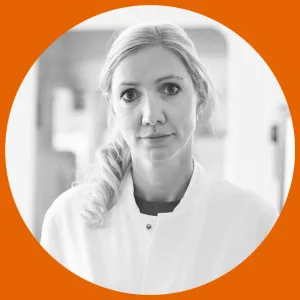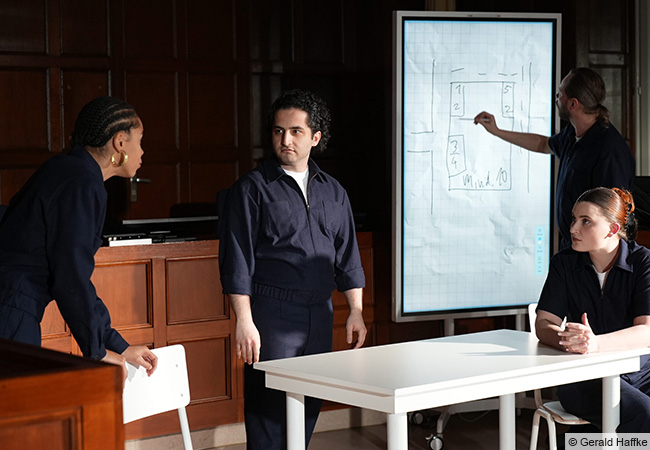We wanted to know: Why did our scientists want to become scientists in the first place? What are they working on, and what do they still want to discover? You can read their answers to these questions and more – including how they motivate their working groups and what they could really do without – as part of this series, which successively introduces some of the people behind the research conducted at Goethe University.

Name: Sandra Ciesek
Profession: Virologist
Place of work: Institute for Medical Virology at the Faculty of Medicine
Why did you become a scientist?
Already as a child, I always wanted to know exactly how the human body works. Later, as a doctor, I wanted to better understand the various clinical phenomena I encountered in everyday life. That is why I decided to move to the laboratory to answer these questions from within the clinic.
What are you currently working on?
Many different projects. We continue to work intensively on various research projects to improve our understanding of coronaviruses and other RNA viruses – how they replicate in the cell and what potential targets exist for new therapies. Together with other scientists, we are currently characterizing various substances that attack certain structures of the coronavirus, thus rendering it harmless. While one working group is primarily concerned with wastewater studies of viruses, another is developing new cell culture models. In addition to basic laboratory research, we are also involved in other studies, including, for example, on „Pandemic Preparedness“, i.e. how virology in Germany could better prepare itself for a new pandemic. Another project focuses more on healthcare research. As such, one of our institute’s staff members is currently conducting scientific interviews with caregivers from retirement and nursing homes to reflect on their experiences during the pandemic, and learn from them.
What do you still want to find out?
I would like to develop an antiviral drug that can be used in humans sometime in the future.
What does your ideal workday look like?
In addition to research, my tasks also include teaching and, of course, patient care, i.e. virological diagnostics. There is often quite a bit of troubleshooting involved, not to mention constant improvisation. That is why my daily routine often consists of jumping back and forth between very different topics ceaselessly. An ideal workday would give me time to focus on just one topic and think about it for more than five minutes without constant interruptions.
What could you easily do without in your daily work?
The next pandemic, which likely will be triggered by a virus once again.
What I like about my job is…
… being in touch with very different people and handling very different tasks. It never gets boring, because I have no routine …
How do you motivate your working group?
I try to address individual strengths and weaknesses and promote individual development.
In basic research, it is also important to clearly convey why exactly we are doing these projects and how they might help people in the future. That is the decisive motivating factor for many.
To me, Goethe University Frankfurt is…
… first and foremost my workplace. That being said, I really like Westend Campus. I think it’s one of the most attractive campuses in Germany I know of and I occasionally enjoy spending my private time here as well.
What should society know about your research? Are there common misconceptions, and if so, which?
Basic research takes time. We often research a topic for years until we have new findings that we can publish. A common misconception is how long it really takes to develop a drug and, above all, how much it usually costs.
Which famous personality would you like to swap days with?
I wouldn’t want to swap places with any famous person. Fame has many downsides, including sacrificing a large part of your privacy – something I find rather off-putting.
How do you get your mind off research?
Unfortunately, my everyday life and other tasks leave too little time. My problem is not how to get my mind off research, but actually having the time to focus exclusively on research.
Prof. Dr. Sandra Ciesek is a member of the EMTHERA cluster project. The research network investigates the processes that underlie systemic diseases at the interface of infection, inflammation and immunity.
More information on Prof. Ciesek’s research topics is available here.







